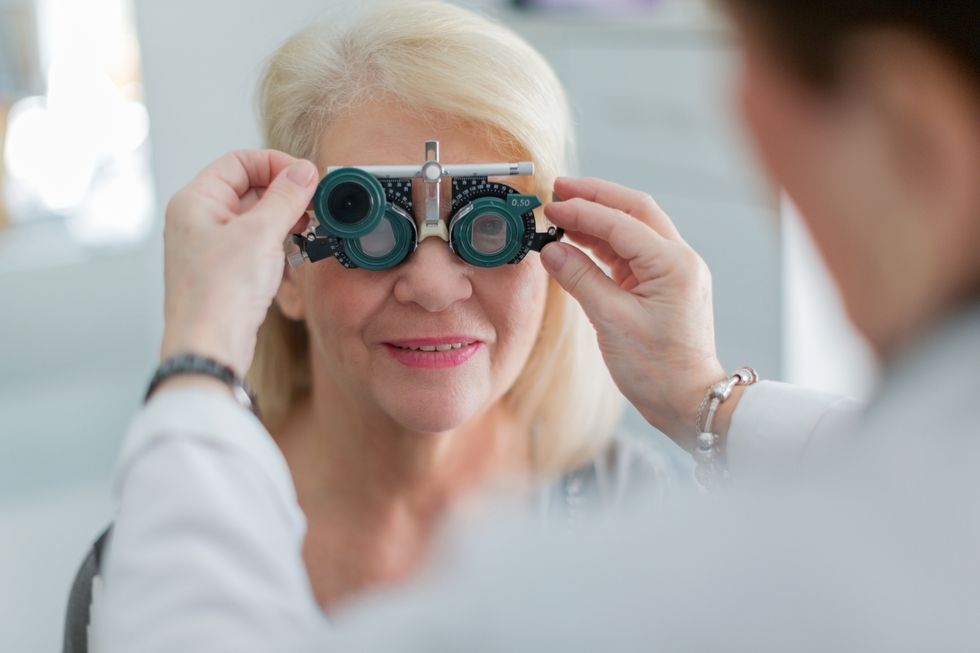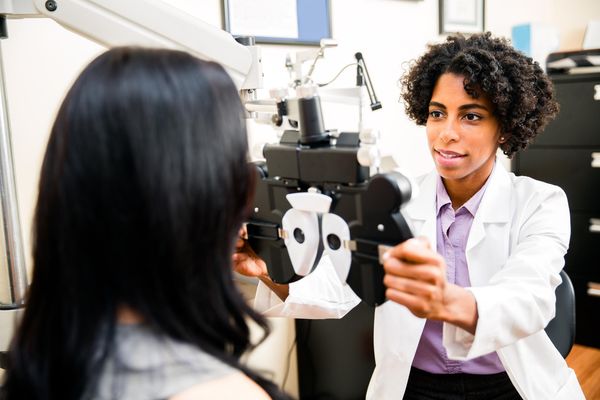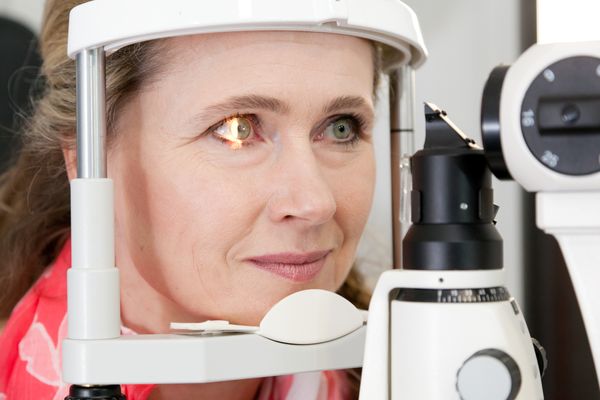Until midlife, you probably didn't think much about your eyes beyond going for your annual eye exam and figuring out which eyeglass frame best suited your face or which contact lens was the most comfortable. (If you're not needing glasses full-time yet—like my husband, lucky guy—it's likely you're at least using reading glasses, which most of us begin to need in our early to mid-40s.)
But as I recently learned firsthand when I had a detached retina (you can read all about it here), we can't take our eyes for granted.
Our eyes, along with many other body parts, change with age.
First to go?
- Our ability to focus, aka presbyopia. It's normal. And it can affect you starting at about age 35. It all begins when you need to hold reading materials farther away to read them clearly. When your arm is no longer enough to go the distance (or you get tired of using it for that purpose), it's time for reading glasses. (Peepers and eyebobs have some really cool frames.)It's possible, too, that you're already wearing glasses for distance, but now you need to take them off to read clearly up close. That's when it may be time to consider bifocal or multifocal lenses, which do double- or triple-duty, helping you to see clearly at various distances—close, mid-range and distance.
- Dry eye. Your tear glands decide to become stingy. They naturally cut back on the tears they produce. This is especially apparent when you go through menopause. I personally have stocked up on lubricating eye drops and stash them everywhere—in my handbag, gym bag, night table, kitchen junk drawer—because I never know when that itchy, gritty, scratchy feeling will strike.
- You need less light. Ever notice when you're driving at night and the oncoming headlights are blinding? Or when it's sunny out and the sun reflects off the pavement or your windshield and makes it really hard to see? That's from changes in the lenses in your eye, which cause the light entering your eye to be scattered, rather than focus where it should (directly on your retina).
- You need more light. No more reading by dim light. Now you need to turn it up a notch or two. Why it happens: Your pupil size becomes smaller and less responsive to changes in light. Smaller pupils also make it more difficult to see well at night. Focusing on small print (like reading a newspaper or menu) in dim lighting can become more challenging, as well. (That's when the flashlight on your phone comes in real handy.)
- You might need cataract surgery. Cataracts—when the lens of the eye becomes cloudy—are pretty common. More than 24 million people in the United States have them, and if you live long enough, more than half of us will have them by age 80. Symptoms include blurriness, difficulty seeing well at night, lights that appear too bright (or halos around lights) and faded color vision. An eye exam can determine whether or not you have cataracts. People I know who have had cataract surgery have no regrets and have told me they're amazed at how clearly they can now see things like colors, shapes … and their wrinkles. (But in all seriousness, a long-term study associates cataract surgery with significantly better long-term survival of older people.)
There are other age-related eye changes to look out for like macular degeneration, glaucoma and diabetic retinopathy. You can't always control them, but the healthy behaviors you're (hopefully) already practicing to ward off threats like heart disease and cancer go a long way toward also protecting your precious eyesight as well. Find out What You Need to Know About Age-Related Blindness.
Want to learn more? I recently wrote about how to keep your eyes healthy every day for Parade Magazine. You can read it here.
This post originally appeared on mysocalledmidlife.net.







